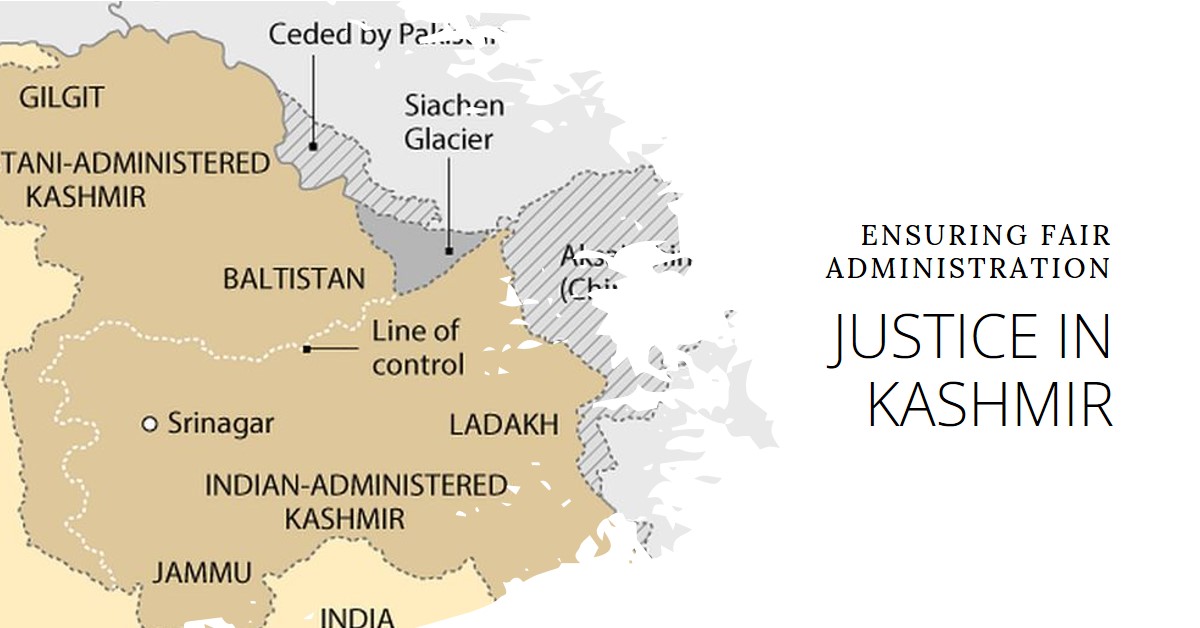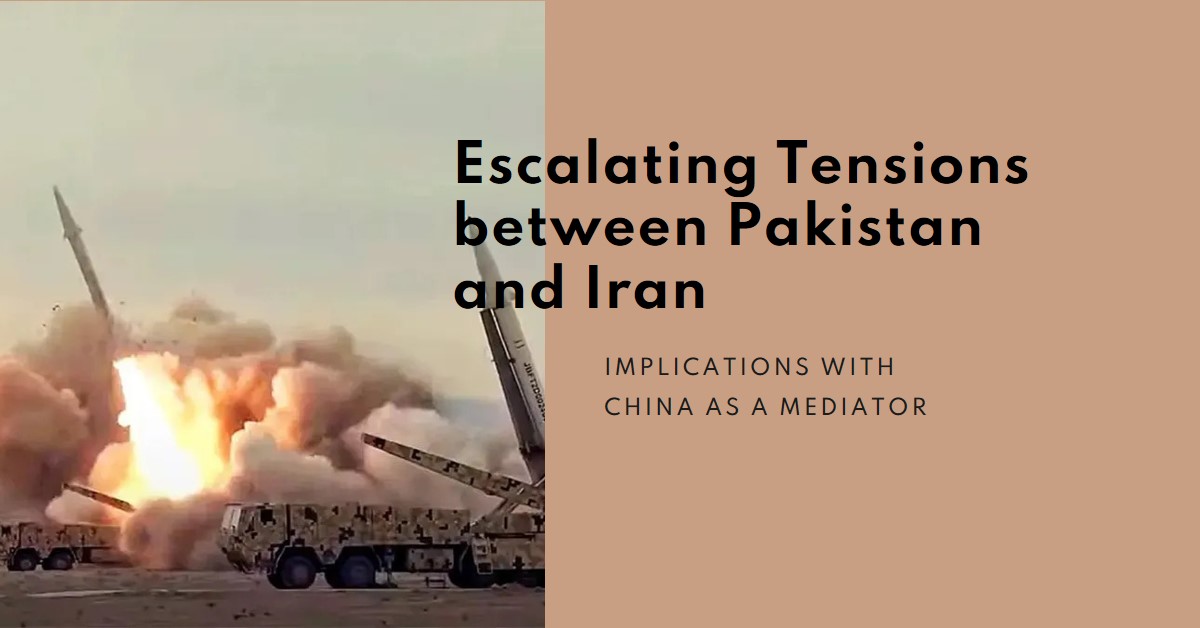Pakistan
Fakhar Zaman’s whirlwind 66 sets up Qalandars victory

Haider Ali’s enterprising 49 and Kamran Akmal’s attacking 41 not enough as Zalmi fall short in 200 chase
Lahore Qalandars 199 for 4 (Fakhar 66, Shafique 41, Irshad 2-47) beat Peshawar Zalmi 170 for 9 (Haider 49, Akmal 41, Zaman 3-32) by 29 runsHaider Ali’s enterprising 49 and Kamran Akmal’s attacking 41 weren’t enough for Peshawar Zalmi, as a whirlwind knock of 66 by Fakhar Zaman helped Lahore Qalandars to a 20-run win.
After Shaheen Afridi bowled Hazratullah Zazai off the third ball of the 200 chase with no run on the board, Akmal and Hussain Talat added 62 as Akmal went for the boundaries while Talat struggled to get going. But Zaman Khan got them both off back-to-back balls in the ninth over, first having Talat caught at deep midwicket before getting Akmal to chop on to his stumps.Akmal’s 41 came off 24 deliveries, including 4, 4 and 6 off successive balls in the fifth over against Rashid Khan, while Talat couldn’t make the most of three drops to limp to 15 from 24 deliveries.
But after Akmal fell, Haider ensured Zalmi didn’t lose the momentum, getting off to a rapid start after himself being dropped. With Mailk also gone and the required run rate up to nearly 15 with seven overs remaining, Rutherford also targeted Rashid, cracking 6, 4 and 4 off consecutive deliveries. However, Zaman Khan dismissed Rutherford for 21 from 11 balls, and despite Haider’s effort, Zalmi were left with too much to do in the end, as David Wiese nearly had a hat-trick for Qalandars with DRS reversing the umpire’s initial out verdict.
And with the bat, Qalandars were set up by an aggressive 94-run opening stand between Fakhar Zaman and Abdullah Shafique. Initially, Fakhar Zaman was the one who went after the bowlers, scoring 26 off his first 13 balls after four overs. Shafique then upped the tempo, slamming Arish Ali for 6 and 4 off the first two balls of the next over.
At least one boundary was hit every over until Usman Qadir got Shafique for 41 off the last ball of the ninth to break the partnership.But Fakhar Zaman pumped Qadir for two more boundaries – the ball drooping off Haider’s fingers at deep square leg facilitated the six – before Talat got him for 66 in the 13th over. That is when Mohammad Hafeez, Kamran Ghulam and Rashid combined to provide the finishing touches to Qalandars’ innings, as they crashed 82 off the final seven overs, with Rashid hitting three sixes in an unbeaten eight-ball 22.
Via espncricinfo
Discover more from The Monitor
Subscribe to get the latest posts sent to your email.
India
Kashmir and the Administration of Justice-III

Professor Zafar Khan, Head of the Diplomatic Department of JKLF and a well-known leader of Kashmiri global diaspora has said, “Kashmiris are denied their collective and individual rights by India. The political, judicial and security establishment in India has orchestrated an environment of fear and impunity across Jammu Kashmir.
With thousands of civilian deaths and politically motivated trials of Kashmiri leaders, India shows scant respect for domestic and international law. Yasin Malik’s trial to convert his deeply flawed life sentence to death is a glaring example of this impunity. It has to be said that recourse to justice for Kashmiris after annexation of disputed Jammu Kashmir, is no longer a basic right for them.”

Human Rights Watch in its World Report 2023 (India) writes, “Allegations of torture and extrajudicial killings persisted, with the National Human Rights Commission registering 147 deaths in police custody, 1,882 deaths in judicial custody, and 119 alleged extrajudicial killings in the first nine months in 2022.
Amnesty International says, “Torture and other ill-treatment of detainees in police custody remain widespread.” According to Amnesty International, these broadly defined powers facilitate the shooting of the suspects in custody. Amnesty International calls PSA as ‘Lawless Law.’
Many members of the United Nations Human Rights Council, Asian Federation Against Involuntary Disappearances, International Commission of Jurists, and other international NGOs have expressed concern that these provisions contravene the right to life provided in the International Covenant on Civil and Political Rights (ICCPR).
Dr. Farhan Mujahid Chak, a Canadian-Kashmiri scholar and widely respected expert on the subject of Kashmir has said, ‘The justice system in the disputed territory of Jammu and Kashmir is as artificial as its current governance structure. No bearing with the reality on the ground and as illegitimate as any settler-colonial power would be anywhere in the world.’ The laws weaponized in the disputed territory are not meant to protect the powerless against the powerful or establish justice. They operate to perpetuate the illegal stranglehold India has over society.
The 43- page report on the ‘Situation in Kashmir’ by the Office of the UN High Commissioner for Human Rights (UNHCHR) issued on June 14, 2018, noted that, “Special laws in force in the state, such as the Armed Forces (Jammu and Kashmir) Special Powers Act, 1990 (AFSPA) and the Jammu and Kashmir Public Safety Act, 1978 (PSA) , have created structures that obstruct the normal course of law, impede accountability and jeopardize the right to remedy for victims of human rights violations. AFSPA grants broad powers to the security forces operating in Jammu and Kashmir and effectively bestows immunity from prosecution in civilian courts for their conduct by requiring the central government to sanction all prospective prosecutions against such personnel before being launched.”
An incarcerated but eminent and internationally known human rights activist, Khurram Parvez echoes those sentiments in 549-page report on, ’Torture: Indian State’s Instrument of Control in Indian Administered Jammu and Kashmir’ on page 104, “In the context of unprecedented militarization in the state of Jammu and Kashmir post 1989, the army is omnipresent in all the villages and towns of the Kashmir Valley. Following the Doctrine of Sub-Conventional warfare (breaking the will of the people), the armed forces have perpetrated inter alia massive torture in the state of Jammu and Kashmir, they are equipped with legal, political, and moral impunity. Despite possessing some powers, the judiciary is avoiding confronting the executive, resulting in an overall state of judicial impunity.”
United States, Department of State Country Report 2022 states that “The Public Safety Act (PSA), which applies only in Jammu and Kashmir, permits authorities to detain persons without charge or judicial review for up to two years without visitation from family members. In April, the press reported that more than 500 persons remained in detention under the PSA in Jammu and Kashmir.”
The country report further adds, “There were reports that police beatings of prisoners resulted in custodial deaths (see section 1.a.). There were reports of abuse in prisons by guards and inmates, as well as reports of rape of detainees by police. According to human rights NGOs, police used torture, other mistreatment, and arbitrary detention to obtain forced or false confessions. In some cases, police reportedly held suspects without registering their arrests and denied detainees sufficient food and water.”
Advocate Jalil Andrabi has said that “the laws conferring unrestricted and arbitrary powers on the armed forces continue to remain in operation in Jammu & Kashmir, with full impunity to the perpetrators or crimes against the humanity and violations of fundamental human rights, threatening the very existence of the people of Kashmir. Indictments and appeals from the United Nations Rapporteurs on Torture; Extrajudicial, summary or arbitrary execution; freedom of opinion and expression; the situation of human rights defenders; Independence of judges and lawyers; Freedom of religion and belief; Violence against women; International Commission of Jurists; Amnesty International; Human Rights Watch have failed to make India withdraw these laws.”
The arbitrary powers conferred upon the armed forces with virtual impunity from any legal action are a part of deliberate Indian State policy wherein, arbitrary arrest, detention, torture, extra-judicial killing, and killings of civilians and unarmed and peaceful demonstrators have been used as a weapon of war. The motive behind these crimes against humanity is to force the Kashmiri people to abandon their struggle for fundamental human rights of self-determination.
The problems associated with attempting to curtail human rights abuses in Kashmir are further complicated by India’s steadfast refusal to allow non-governmental organizations, the United Nations Thematic Special Rapporteurs, Amnesty International and other NGO’s to investigate allegations in Kashmir.
UNHCHR has recommended to the Government of India in its report on page # 48 that “In line with its standing invitation to the Special Procedures, accept the invitation requests of the almost 20 mandates that have made such requests; in particular, accept the request of the Working Group on Enforced or Involuntary Disappearances and facilitate its visit to India, including to Jammu and Kashmir.” It has also recommended to the UN Human rights Council to, “Consider the findings of this report, including the possible establishment of a commission of inquiry to conduct a comprehensive independent international investigation into allegations of human rights violations in Kashmir.”
In reality, as Advocate Jalil Andrabi has said the people of Kashmir are prisoners – prisoners of their conscience. They have been deprived of their non-derogable human rights including their right to life and liberty, and access to justice only because they are demanding to exercise their fundamental inalienable and non-derogable right to self-determination. To restore the basic human rights of the detainee, India must be compelled to concede the right of the people to exercise their self-determination and stop its crimes against humanity in Kashmir.
With these words I have shown the merest tip of the iceberg of the pandemic violations of human rights with which the people of Kashmir must live on a day-to-day basis. Such events are not rare and occasional, but most decidedly part of a systematic policy of repression, victimization, suppression, and colonization. By extension, one has to ask what extremely deleterious effects this activity must have on the psychological health of even the occupying forces, and the families and neighbours of all those affected by such violence.
By our shared humanity, we are obliged not to sit idly by, but to act swiftly and surely to repair the disastrous human chaos that daily threatens human life and the human dignity of the people of Kashmir. The question arises: what should be the point of departure for determining a just and lasting basis? The answer is (a) the Charter of the United Nations and (b) the international agreements between India and Pakistan.
(……Concluded….)
Dr. Fai is the Chairman, ‘World Forum for Peace & Justice’.He can be reached at: gnfai2003@yahoo.com www.kashmirawareness.org
Discover more from The Monitor
Subscribe to get the latest posts sent to your email.
Cricket
Spinners Inspire Consolation Win as New Zealand Fold for 92: Pakistan’s Victory in the Fifth and Final Twenty20 International

Pakistan’s spinners orchestrated a consolation 42-run victory over New Zealand in the fifth and final Twenty20 international on Sunday, preventing a series clean sweep. Despite losing the series 4-1, the tourists finished on a positive note by defending their total of 134 for 8, as the Black Caps crumbled for a meagre 92.
Table of Contents
Introduction
The match was held at Hagley Oval, Christchurch, on January 21, 2024. The Pakistani team won the toss and elected to bat first. The team scored 134 runs for the loss of 8 wickets in 20 overs. In response, the New Zealand team could only manage 92 runs in 17.2 overs, losing all their wickets. The top scorer for Pakistan was Fakhar Zaman with 33 runs. The top scorer for New Zealand was Glenn Phillips with 26 runs. Iftikhar Ahmed was declared the player of the match for his impressive bowling figures of 3/24 and 2 catches.
Pakistan’s victory was largely due to the excellent performance of their spinners. Mohammad Nawaz and Iftikhar Ahmed picked up two wickets each, while Zaman Khan and Usama Mir picked up one wicket each. The New Zealand team struggled against the spin attack, losing six wickets for just 19 runs. The Pakistani team’s fielding was also top-notch, with Ahmed taking two catches and Zaman taking one.
This victory was a much-needed boost for the Pakistani team, who had lost the previous four matches in the series. The team will be hoping to carry this momentum into their upcoming matches.
Pakistan’s spinners inspired a consolation win over New Zealand in the fifth and final Twenty20 international on Sunday, preventing a series clean sweep. Despite losing the series 4-1, the tourists finished on a positive note by defending their total of 134 for 8, as the Black Caps crumbled for a meagre 92.
How Pakistan’s Spinners Orchestrated a Consolation Victory
Pakistan’s victory was largely due to the excellent performance of their spinners. Mohammad Nawaz and Iftikhar Ahmed picked up two wickets each, while Zaman Khan and Usama Mir picked up one wicket each. The New Zealand team struggled against the spin attack, losing six wickets for just 19 runs. The Pakistani team’s fielding was also top-notch, with Ahmed taking two catches and Zaman taking one.
The Match Details
The match was held at Hagley Oval, Christchurch, on January 21, 2024. The Pakistani team won the toss and elected to bat first. The team scored 134 runs for the loss of 8 wickets in 20 overs. In response, the New Zealand team could only manage 92 runs in 17.2 overs, losing all their wickets. The top scorer for Pakistan was Fakhar Zaman with 33 runs. The top scorer for New Zealand was Glenn Phillips with 26 runs. Iftikhar Ahmed was declared the player of the match for his impressive bowling figures of 3/24 and 2 catches.
The Importance of the Victory
This victory was a much-needed boost for the Pakistani team, who had lost the previous four matches in the series. The team will be hoping to carry this momentum into their upcoming matches.
Conclusion
Pakistan’s spinners orchestrated a consolation 42-run victory over New Zealand in the fifth and final Twenty20 international on Sunday, preventing a series clean sweep. Despite losing the series 4-1, the tourists finished on a positive note by defending their total of 134 for 8, as the Black Caps crumbled for a meagre 92. This victory was a much-needed boost for the Pakistani team, who had lost the previous four matches in the series. The team will be hoping to carry this momentum into their upcoming matches.
Discover more from The Monitor
Subscribe to get the latest posts sent to your email.
China
Implications of Escalating Tensions between Pakistan and Iran, The Role of China as a Mediator

The relationship between Pakistan and Iran has been a complex one, with both countries sharing a long border and a history of cultural and economic ties. However, in recent years, this relationship has been strained due to escalating tensions between the two nations. The recent Iran strikes have further exacerbated the situation, leading to concerns about the implications of these tensions on regional stability and the role of China as a mediator. In this article, we will explore the implications of escalating tensions between Pakistan and Iran and the role of China in this volatile situation.
Table of Contents
Historical Background
The relationship between Pakistan and Iran dates back to centuries, with both countries sharing a common border and a rich cultural heritage. In the 1950s, the two countries signed a friendship treaty, which laid the foundation for a strong bilateral relationship. However, this relationship has been marred by various issues, including border disputes, sectarian conflicts, and differences in foreign policy.

Escalating Tensions
The tensions between Pakistan and Iran have been escalating in recent years, with both countries accusing each other of supporting militant groups and interfering in their internal affairs. In 2019, the situation worsened when a suicide attack in Iran’s Sistan-Baluchistan province killed 27 Revolutionary Guards. Iran blamed Pakistan for harbouring the perpetrators of the attack, while Pakistan denied any involvement and condemned the attack.
The recent Iran strikes have further intensified the tensions between the two countries. In January 2020, the United States carried out a drone strike in Iraq, killing Iranian General Qasem Soleimani. In retaliation, Iran launched missile strikes on US military bases in Iraq. This incident has raised concerns about the implications of these tensions on regional stability and the role of China as a mediator.
Strategic Implications
The escalating tensions between Pakistan and Iran have significant strategic implications for the region. Both countries are nuclear powers, and any conflict between them could have catastrophic consequences. The border between Pakistan and Iran is also a crucial transit route for trade and energy supplies, and any disruption in this route could have severe economic implications for the region.
Moreover, the tensions between Pakistan and Iran have also led to concerns about the spread of extremism and terrorism in the region. Both countries have accused each other of supporting militant groups, and any escalation in tensions could provide these groups with an opportunity to exploit the situation and carry out attacks in the region.
Political Implications
The tensions between Pakistan and Iran have also had significant political implications for both countries. In Pakistan, the government has been facing pressure from the opposition and the public to take a firm stance against Iran. The recent Iran strikes have further intensified this pressure, with calls for Pakistan to take a clear position on the issue.
On the other hand, Iran has been facing domestic challenges, including economic sanctions and protests against the government. The tensions with Pakistan have added to these challenges, and the Iranian government has been under pressure to take a strong stance against Pakistan.
The Role of China as a Mediator
As tensions between Pakistan and Iran continue to escalate, the role of China as a mediator has become crucial. China has close ties with both countries and has been actively involved in promoting peace and stability in the region. In the aftermath of the Iran strikes, China has called for restraint and urged both countries to resolve their differences through dialogue.
China has also been working towards improving relations between Pakistan and Iran. In 2019, Chinese Foreign Minister Wang Yi visited both countries and held talks with their leaders to ease tensions and promote cooperation. China has also proposed a trilateral dialogue between China, Pakistan, and Iran to address the issues between the two countries.
Implications for China
The escalating tensions between Pakistan and Iran also have implications for China. China has invested heavily in both countries, and any conflict between them could hurt China’s economic interests. China is also concerned about the spread of extremism and terrorism in the region, which could threaten its Belt and Road Initiative (BRI) projects in Pakistan and Iran.
Moreover, China has been trying to position itself as a global leader and a responsible stakeholder in international affairs. The tensions between Pakistan and Iran provide China with an opportunity to demonstrate its diplomatic skills and play a constructive role in resolving the conflict.
Conclusion
In conclusion, the escalating tensions between Pakistan and Iran have significant implications for regional stability and the role of China as a mediator. The strategic and political implications of these tensions are a cause for concern, and both countries need to resolve their differences through dialogue. China’s role as a mediator is crucial in this volatile situation, and it is in the best interest of all parties involved to work towards a peaceful resolution of the conflict.
Discover more from The Monitor
Subscribe to get the latest posts sent to your email.
-

 Featured5 years ago
Featured5 years agoThe Right-Wing Politics in United States & The Capitol Hill Mayhem
-

 News4 years ago
News4 years agoPrioritizing health & education most effective way to improve socio-economic status: President
-

 China5 years ago
China5 years agoCoronavirus Pandemic and Global Response
-

 Canada5 years ago
Canada5 years agoSocio-Economic Implications of Canadian Border Closure With U.S
-

 Democracy5 years ago
Democracy5 years agoMissing You! SPSC
-

 Conflict5 years ago
Conflict5 years agoKashmir Lockdown, UNGA & Thereafter
-

 Democracy5 years ago
Democracy5 years agoPresident Dr Arif Alvi Confers Civil Awards on Independence Day
-

 Digital5 years ago
Digital5 years agoPakistan Moves Closer to Train One Million Youth with Digital Skills
















